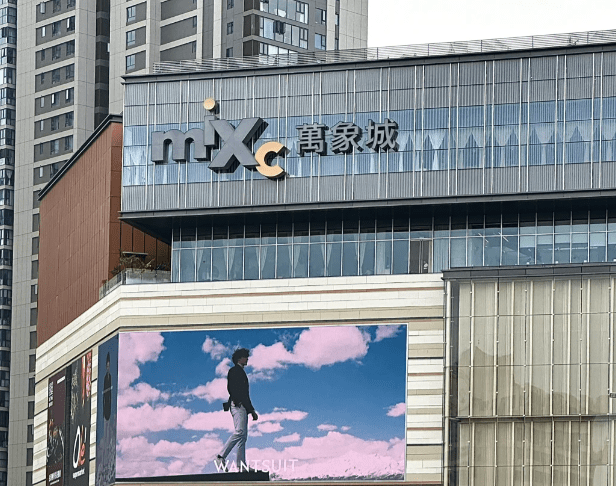
Jinggu County Shopping
What to Buy in Jinggu County
Jinggu Dai and Yi Autonomous County (景谷傣族彝族自治县) is an autonomous county under the jurisdiction of Pu'er, Yunnan Province, China. When you come to Jinggu Dai and Yi Autonomous County, there are things you can buy for your family and relatives.
1. Dai People Clothes(傣族服饰)
The clothes for men are pretty the same in different areas. The upper garment is usually a front-opening collarless jacket or narrow-sleeved short jacket. The lower garment is a pair of light-colored, broad-waist, and pocket-less pants. Most men use white or cyan cloth to wrap the head, with some wearing a woolen hat. They have a blanket over their shoulders when it’s cold. The Dai men are bare-footed all the year round. Their clothes are light and comfortable for doing farm work and look elegant and smart when the wearer is dancing. The Dai women tend to pay special attention to their clothing, focusing on light, beautiful, simple and elegant dresses as well as on the perfect match of colors. Their upper garment is a tight-fit undershirt that comes in different colors and a light-color front-opening jacket with narrow sleeves over the undershirt. The lower garment is a flowery straight skirt with various woven patterns.
2. Pu’er Tea(普洱茶)
Pu'er Tea is a variety of fermented and aged dark tea produced in Yunnan province, China. Fermentation in the context of tea production involves to microbial fermentation and oxidation of the tea leaves, after they have been dried and rolled. This process is a Chinese specialty and produces tea known as Hei Cha (黑茶), commonly translated as dark, or black tea (this type of tea is different from what in the West is known as "black tea", which in China is called "red tea" 红茶). The best known variety of this category of tea is Pu'er Tea from Yunnan Province, named after the trading post for dark tea during imperial China.
3. Tanks Noodle(罐罐米线)
Noodles are a staple food in many places made from unleavened dough which is stretched, extruded, or rolled flat and cut into one of a variety of shapes. Noodles are usually cooked in boiling water, sometimes with cooking oil or salt added. They are often pan-fried or deep-fried. Noodles are often served with an accompanying sauce or in a soup. Noodles can be refrigerated for short-term storage, or dried and stored for future use. The material composition or geocultural origin must be specified when discussing noodles. The oldest evidence of noodle consumption, from 4,000 years ago, has been found in China.
4. Golden Phoenix Mango(金凤凰芒果)
The mango is a juicy stone fruit (drupe) belonging to the genus Mangifera, consisting of numerous tropical fruiting trees, cultivated mostly for edible fruit. The majority of these species are found in nature as wild mangoes. They all belong to the flowering plant family Anacardiaceae. The mango is native to South Asia, from where it has been distributed worldwide to become one of the most cultivated fruits in the tropics. The center of diversity of the Mangifera genus is in India. While other Mangifera species (e.g. horse mango, Mangifera foetida) are also grown on a more localized basis, Mangifera indica—the "common mango" or "Indian mango"—is the only mango tree commonly cultivated in many tropical and subtropical regions. It is the national fruit of India, Pakistan, and the Philippines, and the national tree of Bangladesh.
5. Jinggu Brown Sugar(景谷红糖)
Jinggu brown sugar is very famous. Brown sugar is a sucrose sugar product with a distinctive brown color due to the presence of molasses. It is either an unrefined or partially refined soft sugar consisting of sugar crystals with some residual molasses content (natural brown sugar), or it is produced by the addition of molasses to refined white sugar (commercial brown sugar). The Codex Alimentarius requires brown sugar to contain at least 88% of sucrose plus invert sugar. Commercial brown sugar contains from 4.5% molasses (light brown sugar) to 6.5% molasses (dark brown sugar) based on total volume. Based on total weight, regular commercial brown sugar contains up to 10% molasses.
Where to Buy in Jinggu County
In Jinggu County, it is convenient to buy the local products. Many shops are sold the local products. Such as,
1. Jinggu Nidongde Local Products Shop
Add: Rental Housing, Mengwo Hotel, Jinggu County, Pu’er
2. Jinggu Sanjing Local Products Co., Ltd.
Add: No. 718 Fourth Group, Dazhai Village, Weiyuan Street, Weiyuan Town, Jinggu County

 7 Days GolfingTour
7 Days GolfingTour
 8 Days Group Tour
8 Days Group Tour
 8 Days Yunnan Tour
8 Days Yunnan Tour
 7 Days Shangri La Hiking
7 Days Shangri La Hiking
 11 Days Yunnan Tour
11 Days Yunnan Tour
 6 Days Yuanyang Terraces
6 Days Yuanyang Terraces
 11 Days Yunnan Tour
11 Days Yunnan Tour
 8 Days South Yunnan
8 Days South Yunnan
 7 Days Tea Tour
7 Days Tea Tour
 8 Days Muslim Tour
8 Days Muslim Tour
 12 Days Self-Driving
12 Days Self-Driving
 4 Days Haba Climbing
4 Days Haba Climbing
 Tiger Leaping Gorge
Tiger Leaping Gorge
 Stone Forest
Stone Forest
 Yunnan-Tibet
Yunnan-Tibet
 Hani Rice Terraces
Hani Rice Terraces
 Kunming
Kunming
 Lijiang
Lijiang
 Shangri-la
Shangri-la
 Dali
Dali
 XishuangBanna
XishuangBanna
 Honghe
Honghe
 Kunming
Kunming
 Lijiang
Lijiang
 Shangri-la
Shangri-la
 Yuanyang Rice Terraces
Yuanyang Rice Terraces
 Nujiang
Nujiang
 XishuangBanna
XishuangBanna
 Spring City Golf
Spring City Golf
 Snow Mountain Golf
Snow Mountain Golf
 Stone Mountain Golf
Stone Mountain Golf





